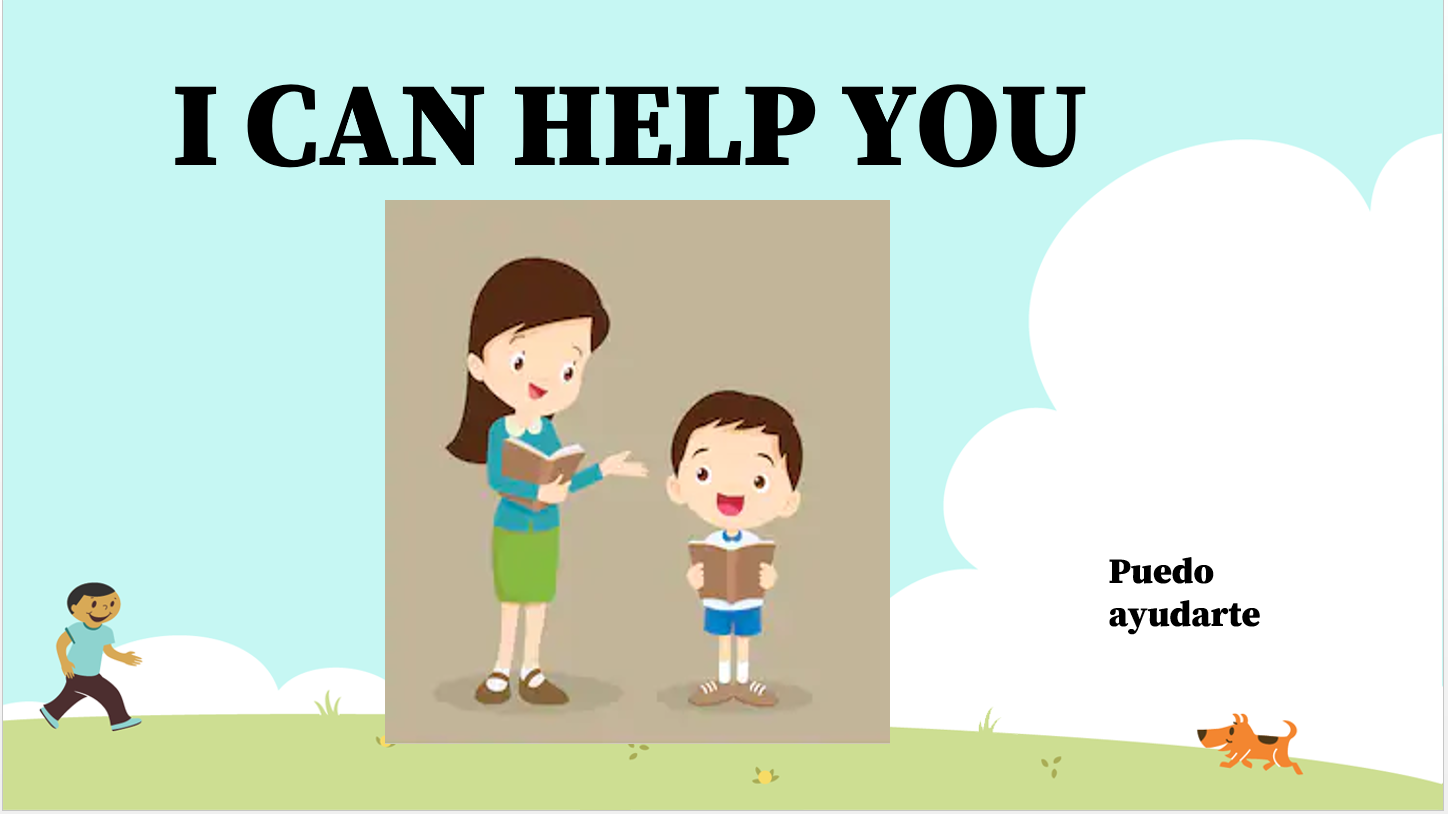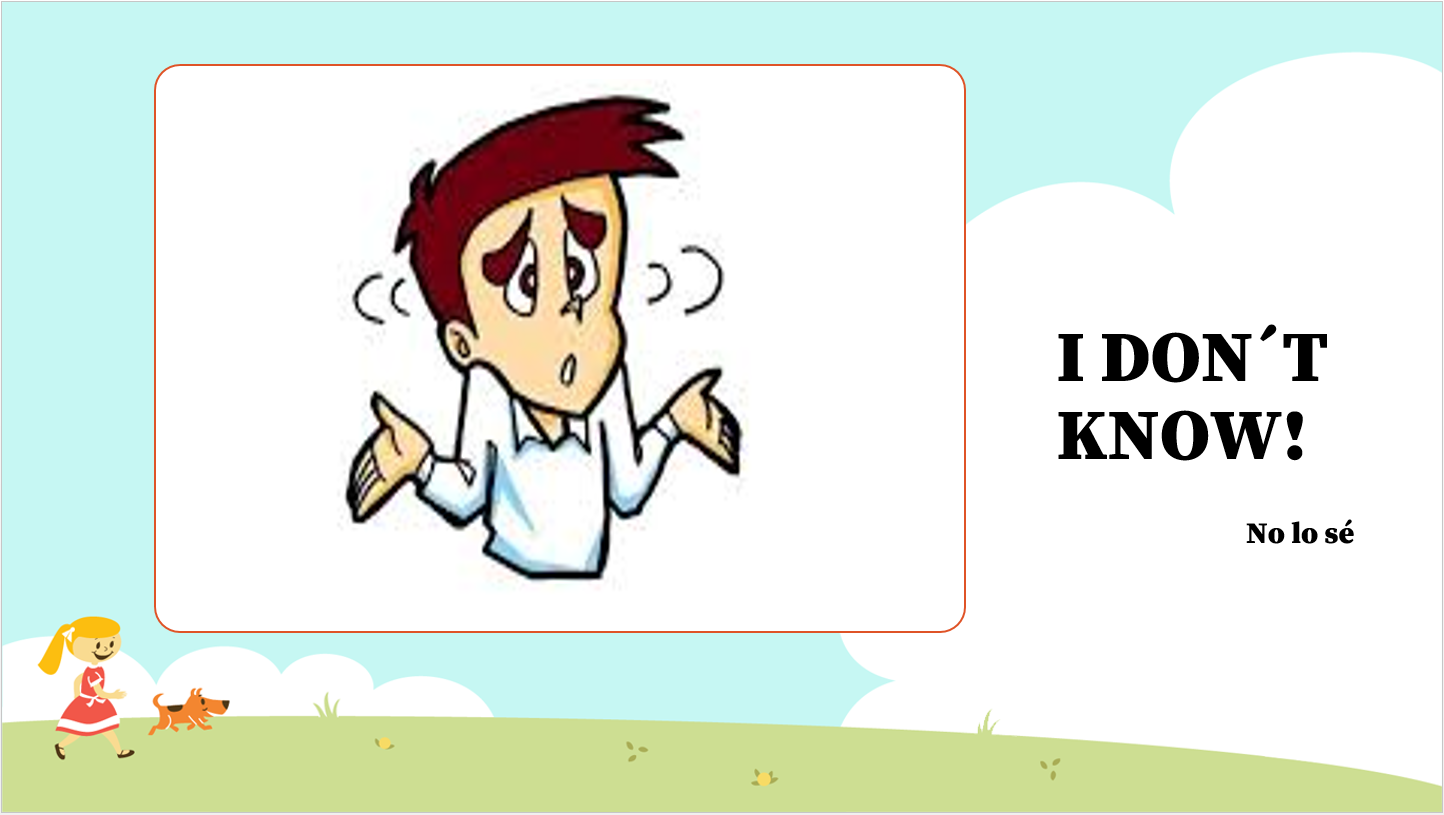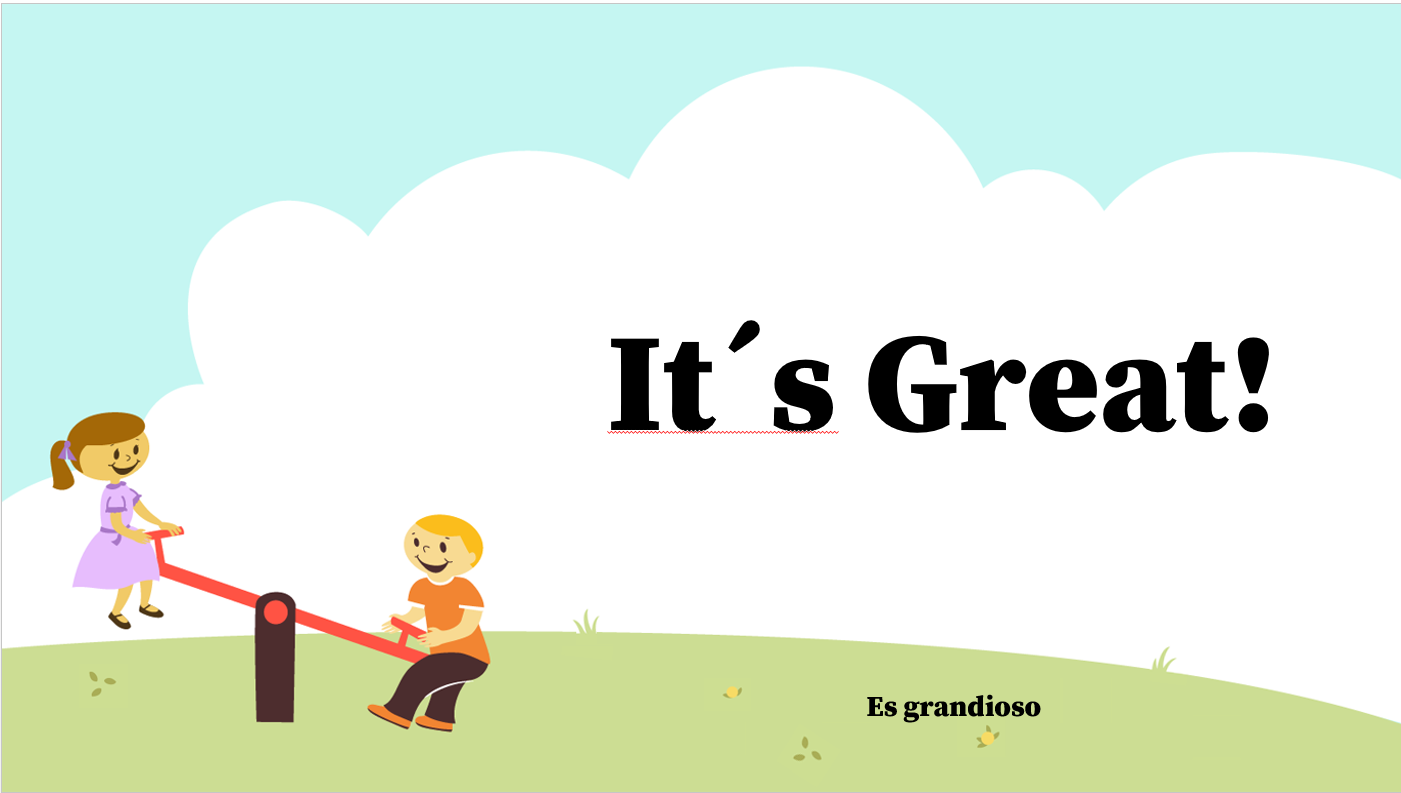Expresiones comunes en nuestra vida cotidiana
Aprendizaje esperado: comprende el contenido de un diálogo.
Énfasis: reconoce expresiones dentro de un diálogo.
¿Qué vamos a aprender?
| Today you will learn useful expressions for your daily life. | El día de hoy aprenderás algunas expresiones que puedes utilizar en conversaciones cotidianas. |
| For example with the family, friends or classmates. | Por ejemplo, con la familia, amigos o amigas o compañeros y compañeras de clase. |
| Prepare your notebook and pencil case to take notes, so you can use them later. | Prepara tu cuaderno y lapicera para que las anotes y las puedas utilizar posteriormente. |
¿Qué hacemos?
| To know some of these expressions. | Para conocer algunas de estas expresiones. |
| See Meli´s story. | Ve la historia de Meli. |
| Also you will find out. | También descubrirás |
| How Meli feels today. | Cómo se siente el día de hoy Meli. |
| She feels happy or sad. | Se siente feliz o triste. |
| You can see and listen the story in the next video: | Puedes ver y escuchar la historia en el siguiente video: |
| Meli looks sad… Susy: Hi Mely, you look sad, what happened? Meli: Hello Sandy, I can´t find Tommy, my puppy. Susy: Oh DON´T WORRY Meli, I CAN HELP YOU to find him, COUNT ON ME. Meli: Really? Thank you Susy. IN THE LIVING ROOM… Meli: Charly, where is Tommy? Charly: I DON´T KNOW, maybe he´s in the kitchen. Mely: Ok, see you later Charly. Susy: Bye Charly IN THE KITCHEN… Meli: Mommy, Mommy, Where´s Tommy, I can´t find him. Mom: I DON´T KNOW sweetie, look for him in the garden. (Something is broken) Meli: Ouch, DON´T WORRY mommy, I help you later to clean that mess. COUNT ON ME. IN THE GARDEN Susy: Meli, come quickly, here´s Tommy. Meli: Fantastic. IT´S GREAT that you find him. Thank you so much. I love you Susy. Susy: UFF THE END… How does Meli feel at the beginning of the story? Meli feels SAD What is the reason? She couldn´t find her puppy. So she felt sad. At the end of the story how does she feel? She feels happy. Of course because she found her puppy. As you noticed in Meli´s story. There are some expressions that we can use in different situations in our daily life. Analize them And prepare your notebook to copy them. Later you can practice them. It’s time to practice |
Meli se ve triste… Hola Meli te veo triste ¿Qué pasa? Hola Sandy, no encuentro a Tommy mi perrito. No te preocupes Meli, te ayudaré a encontrarlo, cuenta conmigo. ¿De verdad? Gracias Susy. EN LA SALA… Charly, ¿Dónde está Tommy? No lo sé, tal vez está en la cocina. Nos vemos más tarde Charly Adios Charly EN LA COCINA… Mami, mami, ¿Dónde está Tommy? No lo encuentro. No lo sé dulzura, búscalo en el jardín. (Algo se rompe) No te preocupes mami, te ayudaré después a limpiar. Cuenta conmigo. EN EL JARADÍN Meli, ven rápido, aquí está Tommy. Fantástico, es grandioso que lo hayas encontrado. Muchas gracias, te quiero Susy. UFF Fin… ¿Cómo se siente Meli al inicio de la historia? Meli se siente triste. ¿Cuál es la razón? No encontraba a su cachorro. Por tanto, se sintió triste Al término de la historia ¿Cómo se siente? Se siente feliz. Por supuesto porque encontró a su cachorro. Como te diste cuenta en la historia de Meli Hay algunas expresiones que podemos utilizar en diversas conversaciones de nuestra vida cotidiana. Analízalas Y prepara tu cuaderno para copiarlas. Después las puedas practicar. Es tiempo de practicar |

| DON’T WORRY Imagine a situation when you use this expression. There are situations when you feel bad, because you can´t solve an exercise or maybe a math problem? Even in the school or in the house. And mother or somesection else says DON´T WORRY. Everything will be ok. |
NO TE PREOCUPES Imagina una situación cuando puedas utilizar esta frase. Hay situaciones en las que no se puede resolver un ejercicio o tal vez algún problema de matemáticas. Ya sea en la escuela o en casa. Mamá o alguien más te dice no te preocupes. Todo estará bien. |

| I CAN HELP YOU Did you remember a situation when have offered help? For example, when you offer your help to a member of your family or somesection else. |
PUEDO AYUDARTE ¿Recuerdas alguna situación en la que hayas ofrecido ayuda? Por ejemplo, cuando ofreces tu ayuda a algún miembro de la familia o a alguien más. |
O tal vez ofrezcas tu ayuda diciendo:
| COUNT ON ME For example, when your grandfather/mother maybe wants to go to the store. You say COUNT ON ME. |
CUENTA CONMIGO Por ejemplo, cuando tu abuelito/abuelita quiere ir quizá a la tienda. Tu le dices cuenta conmigo. |

| Another common expression in our daily life is: I DON´T KNOW What happens in these days at home? Mommy asks Where´s your notebook? You say “I don´t know” |
Otra expresión común en nuestra vida cotidiana es: NO LO SÉ ¿Que pasa en estos días en casa? Mamá pregunta ¿Dónde está tu cuaderno? Tú respondes “No sé” |

| How do you feel when you and your family go to the park? You express It´s great! |
¿Cómo te sientes cuando tu y tu familia van al parque? Exclamas ¡Grandioso! |
| It´s time for a challenge. Practice the expressions that you have learned. Pay attention to the next situations. They are some daily situations in the school or house. Choose the correct expression.
What would you say? |
Es hora de un reto. Practica las expresiones que has aprendido. Pon atención en las siguientes situaciones. Se presentan situaciones cotidianas en la casa o en la escuela. Escoge la expression correcta.
¿Qué dirías? |
KNOW DON´T I
ME ON COUNT
GREAT IT´S
HELP I YOU CAN
WORRY DON´T
| Remember to practice these expressions in you day by day. | Recuerda repasar las frases en tu día a día. |
¡Buen trabajo!
Gracias por tu esfuerzo.
Para saber más:
